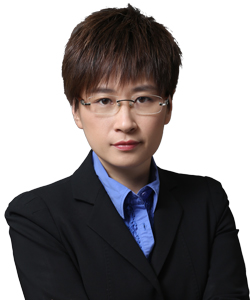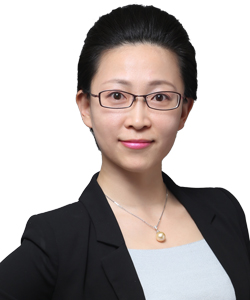In recent years, many brands have been engaging internet celebrities, famous stars, entertainers or other influencers to help promote their products or services via Weibo posts, Tik Tok short videos, live broadcast, etc., which is commonly called Daihuo in Chinese.
Legally speaking, Daihuo is a form of advertising campaign where a brand entrusts a celebrity to market their products and services online, which may constitute a breach of the Advertising Law due to issues like flawed products, illegal advertising, and crooked promotion.
Endorse or not?

Partner
Hylands Law Firm
Pursuant to the Advertising Law, anyone other than the advertiser (e.g., a brand), that recommends or certifies goods or services in an advertisement in its own name or image shall be deemed as an “endorser”. That is to say, where celebrities have the conduct of recommending a branded product using their influence on social media, they should be deemed as an endorser regardless of whether they claim to be endorsers, or whether they’ve conducted such promotions frequently or for a long term. In a word, the substance of conduct speaks louder than the form. Overall, the general principle is to determine whether a conduct fits the above-mentioned legal definition.
Meanwhile, a person’s role as an “advertising publisher” will be established if he/she meets the following four conditions: (1) He/she is not an advertiser; (2) He/she pushes or displays advertisements; (3) He/she is able to examine the contents of advertisements; and (4) He/she has the right to decide to publish an advertisement. Therefore, where celebrities are entrusted to promote a branded product via their SNS account, operated and controlled by themselves, they shall be identified as an “advertising publisher”.
Thus, a celebrity engaged in Daihuo is both an “endorser” and an “advertising publisher”, meaning that they are bound by the legal responsibilities that come with these two roles. It’s also worth noting that the laws impose heavier obligations (e.g., verification of supporting documents) on an advertising publisher as it is the final operator of placing an advertisement to the target audience.
Risk prevention

Partner
Hylands Law Firm
Do not cross the red lines. The “red lines” involved in Daihuo refer to product- or subject-related limitations. Product-related red lines include the following: (1) products with manufacturing and sale prohibited by laws and regulations, special drugs (e.g., narcotics, psychotropic substances, etc.), drug precursor chemicals, and pharmaceuticals, medical machinery and treatment method for drug abuse rehabilitation, shall not be advertised; and (2) medical treatment, drugs (including health food with special medical ingredients) medical apparatus and instruments shall not be advertised through celebrity endorsements.
Subject-related red lines refer to the following: (1) a person who has not used a product or service to be promoted shall not offer endorsement for it; (2) minors below 10 years old shall not act as an endorser; and (3) a person whose three-year period of administrative punishment for providing recommendations in false advertising has not expired shall not act as an endorser.
Verify supporting documents. As an advertising publisher, celebrities shall verify the authenticity, legitimacy and validity of the relevant supporting documents in their practices of Daihuo. Otherwise, they may be fined. Where an advertisement published by a celebrity is deemed as false, he/she will bear the civil or administrative liability of paying compensation and fines, and may even commit the crime of false advertising.
Celebrities shall verify the following supporting documents before engaging in Daihuo: (1) identity documents such as business licence; (2) documents proving the legitimacy of a particular business such as food production licence and food trading licence; (3) documents relating to advertisement examination (for healthcare products, pharmaceuticals and health food, advertisement approval documents shall be checked); (4) supporting documents relating to the ingredients, effect, data or any other contents covered in the advertisement; and (5) brand-related documents including brand /trademark ownership certificates or licensing such as trademark registration certificates.
Pay attention to advertising content. As an advertising publisher, celebrities shall check the authenticity and legitimacy of the advertising contents in accordance with the laws and regulations. They should check whether the actual products or services are the same as they are in the advertisement, and whether the advertisement is illegal or misleading.
Given celebrities tend to add an improvisational performance to their live broadcast, it is suggested to avoid words sounding too absolute, including superlatives like “first-class”, “top” and “best”. Once celebrities use such words, they may face punishments such as confiscation of advertising fees, and a fine of RMB200,000 (US$28,500) up to RMB1 million.
However, superlatives can be used in some cases, if they are not misleading. In practice, the following wording is acceptable in most cases: (1) expressions used to indicate an aspiration such as “striving to be no.1”; (2) expressions used to compare with the brand’s other products such as “top version”; (3) expressions used to describe subjective feelings such as “my favorite…”; and (4) expressions based on facts such as “Single’s Day sales champion of shampoo on … platform in 2018”.
Yu Rong and Tao Shan are partners at Hylands Law Firm.

Hylands Law Firm
12F Fortune Financial Center (FFC)
No.5 Dongsanhuan Zhong Road
Chaoyang District, Beijing 100020, China
Tel: +86 10 6502 8888
Fax: +86 10 6502 8866/8877
E-mail:
yurong@hylandslaw.com
taoshan@hylandslaw.com
www.hylandslaw.com





















